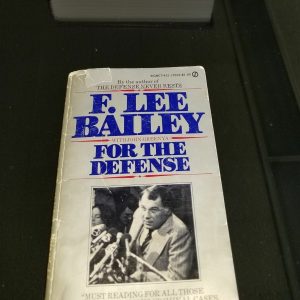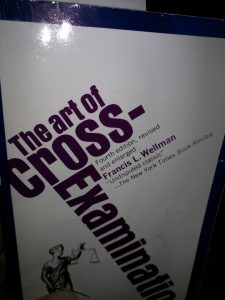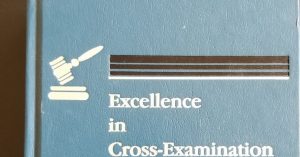WHO THE FAILURE TO PAY COMMISSION ACT COVERS.


The purpose of the Sale Representative Commission Payment Act: Punish those companies who screw over commissioned based workers.
COMPANIES SUBJECT TO THE ACT–DENIED SALES COMMISSIONS
Direct sales companies are expressly provided for and are covered by the Act. Most principle and agent relationship where someone sales a product or good for the company are covered.


EXCLUSIONS FROM THE DENIED COMMISSIONS ACT.
The statute expressly excludes the following types of salespersons:
(1). Licensed insurance agents under the Utah Insurance Code.
(2). Real estate agents licensed under Chapter 2f of the Real Estate Licensing and Practices Act;

(3). A person who provides a product or service under a business relationship with a principal that is incident to the purchase or sale of real property.
(4) A person who places an order or purchases a product or service for that person’s own account for resale.
LEGAL REQUIREMENTS — A SIGNED COMMISSION AGREEMENT
For the act to apply you must have a written commission agreement signed by you and the company. See Utah Code Ann. 34-44-201. The company must provide you a signed copy of the commission agreement and the agreement must specify how commissions are computed and paid.
No signed agreement, the protections of the Act don’t apply and you have to sue for breach of contract and unjust enrichment.
REMEDIES FOR DENYING A SALES COMMISSION
The law allows for reasonable attorney fees, court costs and treble damages on all commissions that you are owed. Most legislation doesn’t have treble, three times, the damage or attorney fees.
Treble Damages for Commissions: If you prove you were stiffed a $100 commission, the court will order that commission to be paid in the form of a judgment. With treble damages, your actual damages, i.e., the $100 commission now turns into $300. The proof requirements are still the same, but you can get treble damages in commissions cases which make denied commissions cases very attractive to attorneys.
Attorney Fees: Utah follows the American Rule for attorney fees. The American Rule for attorney fees states that each party pays their own attorney fees unless a statute, the court, or the common authorizes the losing side to pay your attorney’s fees. The British Rule is loser pays. You bring suit, you had better be sure to win, or you pay the other side’s attorneys fees.
The exceptions to the American Rule of attorneys fees are found where a statute expressly authorizes that the loser pays. The Act has a loser pays attorney fees provision. See Utah Code Ann. 34-44-301.
Court Costs: Court costs are not extensive and mainly include the filing fee, subpoena fees, service, fees and depositions. These add up to around $1,000. Court costs generally do not include costs for expert witness fees. Court costs are governed by Utah R. Civ. P. 54.
The full remedies provisions read:
34-44-301. Failure to pay commission.
(1) A sales representative may bring a civil action in a court of competent jurisdiction against a principal for failure by the principal to comply with:
(a) any provision of an agreement relating to the payment of commission; or
(b) Subsection 34-44-202(1) or (2).
(2) If a principal is found liable under Subsection (1), the principal is liable to the sales representative for:
(a) three times an amount calculated by:
(i) determining the sum of unpaid commission owed to the sales representative; and
(ii) subtracting from the amount determined under Subsection (2)(a)(i) money the sales representative owes the principal;
(b) reasonable attorney fees; and
(c) court costs.
OTHER PROVISION’S OF UTAH DENIED COMMISSIONS ACT
If the act doesn’t apply to you because of the express exclusions or you don’t have a signed agreement by both parties, you can still sue for breach of contract and unjust enrichment. Breach of contract and unjust enrichment are ancient common law forms of action where you basically tell the court that you did your job and they didn’t pay it.
EVIDENCE STANDARDS AND PROOFS IN PROVING DENIED COMMISSIONS
Most civil cases the plaintiff must prove their case by a preponderance of the evidence. The defense bears no burden in disproving the plaintiff’s case. A preponderance of the evidence can be read as:
“The greater weight of the evidence.”
“51 percent proof.”
“A more likely than not standard.”
Beyond a reasonable doubt is reserved for criminal cases and is more like going 99 yards on the football field or hitting a home run in baseball.
The Occurrence of Damages—By Preponderance.
Common the company who you are suing will have most of the documentation needed to prove your lost sales commissions. The fact, or occurrence that they unlawfully denied your commissions needs to be proved by a preponderance of the evidence.
The extend of your damages is a lesser proof standard that is not as high as the proof required to prove the occurrence of damages. This lower proof standard for proving the extent of your denied sales commissions is very useful when the company hides all proofs from you during the discovery period.
Attorney Jake Gunter normally practices only criminal defense and personal injury law. He always represents the small man, rarely businesses and representing salespeople illegally cut out of commission fits perfectly into his client base. Attorney Jake is a trial lawyer actively trying lawsuits to juries and judges across Utah. He has been representing the underdog for nearly 20 years.
